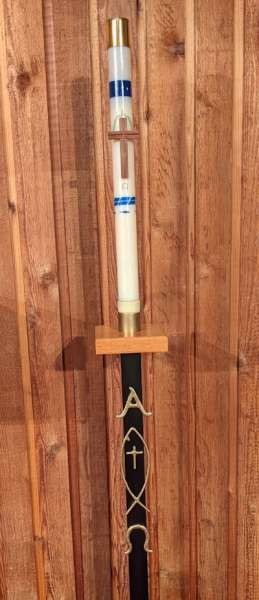During the Season of Lent we shaped worship in a couple of different ways. For one thing, we added a part of the traditional Sunday liturgy we haven't used for a while - the Kyrie. ("Lord have mercy, Christ have mercy, Lord have mercy.") We hope that helped support a sense of what Lent is all about. We could keep doing the Kyrie - is a formal part of the liturgy - but our worship style at Messiah is a little less formal. The goal was simply to remind ourselves about some of the nuances of traditional liturgy, not necessarily to reinstate it all.
Another change we made was bringing the Psalm back in a sung form. If you worship online or at the Hazel Dell campus you may remember having the song leader teach you a quick Psalm refrain, and a soloist singing verses with you joining in with that refrain now and again. We hope you enjoyed that. We may do that on occasion again, but we won't try doing it every Sunday. It's hard to find appropriate song tunes for every Psalm. Other changes that we have made in worship post-COVID are the return of the Sharing of the Peace and passing the Offering Plate. We now also have a dedicated core of young people serving as acolytes. How great is that? Thank you, acolytes!!
For the Season of Easter (March 31 - May 12) we'll be doing something else a little bit different at the Hazel Dell campus - two things actually. One is that we'll be lighting the "Christ Candle" every Sunday. We use the Christ Candle a lot, and that's okay, but generally the Christ Candle - more commonly known as the "Paschal Candle" - is only lit during the Sundays of Easter (Easter Sunday up to Pentecost) and for especially sacred rites of the Church such as baptisms or funerals. The candle was appropriately unlit for the season of Lent. Now we'll be lighting it again for the next 7 weeks.
And take a good look at the Paschal Candle sometime. Paschal Candles always has an "Alpha" and an "Omega" on them. These are the first and last letters of the Greek alphabet, the language in which the New Testament was written. In the book of Revelation Jesus says, "I am the Alpha and the Omega, the first and the last . . ." We teach and believe that Jesus is the "Word," as in "In the beginning was the Word." Yes, the Beginning - the Alpha. And we believe that Jesus is fulfillment of all, the goal and grace of time - the Omega.
But that's not all. In between the Alpha and the Omega there is cross. Here and now, in 2024, Jesus is with us as a the Crucified One. Take a close look at our Paschal Candle. Can you find the cross, the Alpha and the Omega?
On Trinity Sunday we often sing the hymn "Holy, Holy, Holy." "Holy, holy, holy, Lord God Almighty, early in the morning our song shall rise to you . . ." Do you recognize that? The second verse goes like this:
Holy, holy, holy! all the saints adore Thee,
casting down their golden crowns around the glassy sea;
cherubim and seraphim, falling down before Thee,
which wert and art and evermore shalt be.
As a kid I remember wondering what "which, wert and art" meant. It turns out they're Old English forms of the verb "to be" - as in, which=was; wert=is; and art=will be. It makes for good poetry and nice lyrics. It's also the same message which burns as the Paschal Candle.
(Oh ya. We were talking about changes in the liturgy for Easter. Sorry.) Secondly, we will also be bringing the communion cups and patens (the plates with the communion bread on them) up with the offering plates mid-service. There's a reason for this. Our financial offerings are real and important, but they are also symbolic. They are symbolic of all that we give in thanksgiving to God. You may know the song, "We give Thee but thine own, whatever the gift may be. All that we have is Thine alone, a trust O Lord from Thee." Liturgy is drama. We really do give. God really does bless our gifts. Your financial offerings really do go to support works and ministries you value. Even though many of us give online and the days of putting a $20 in the offering plate every Sunday may be old, the passing, the giving, and the bringing to the altar is not. It is a symbol of all that happens behind the scenes, as well as those $20 bills that actually are still placed in the plate. Thank you.
But bread and wine are also gifts. We plant the wheat and grapes. God gives the growth. But we harvest and bake the bread or make the wine. So again, symbolically, we also bring these gifts to God. They are what they are - importantly! - but they are also symbols of our daily life and work. The bread and wine, though, are always and immediately returned to us as the Body and Blood of our Lord Jesus Christ. Bringing bread and wine forward with the offering plates, then, is also part of our weekly liturgical drama. Many of the things we do in worship are symbolic, but they are never just symbolic. We really give. We are really fed. The bread and wine of communion are, for us, not just symbols. We teach and believe that Jesus really is present for us in the Sacrament.
This, by the way, is also why we invite you to stand as the offering is brought forward. It's not about the money, it's the Meal - and a lot more!!
Pr. Dave Brauer-Rieke


